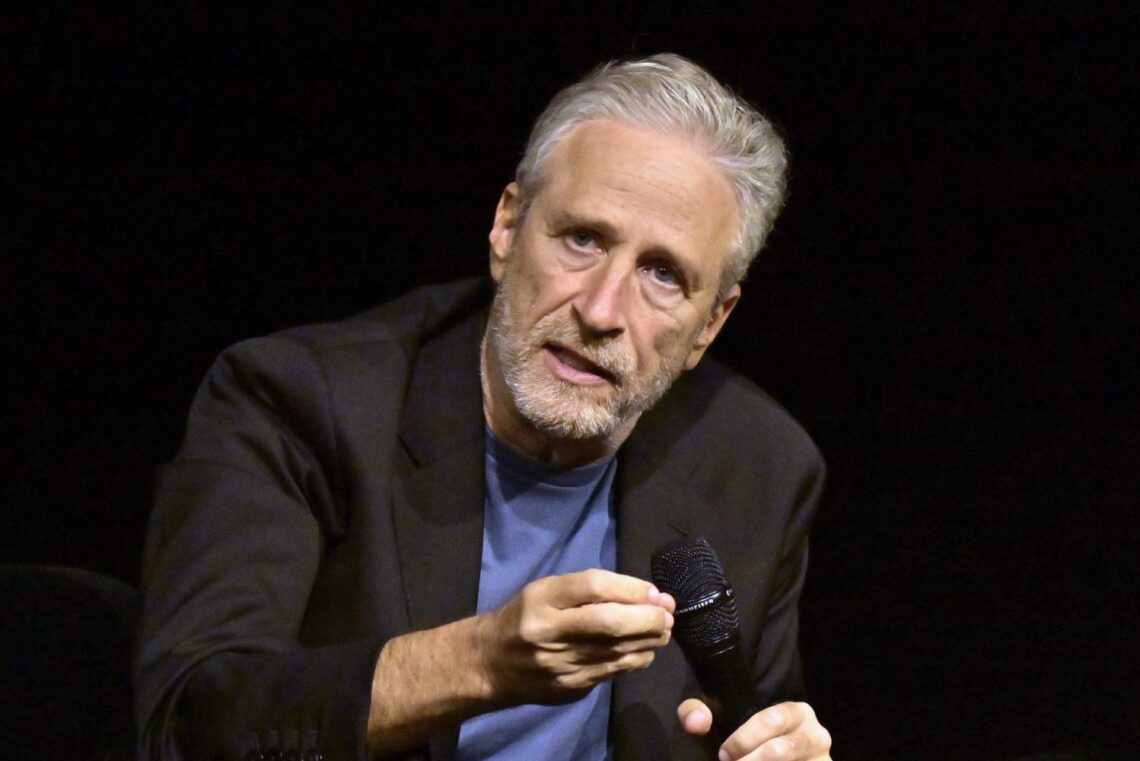Jon Stewart’s podcast exposes media’s reluctance to engage
A candid critique of mainstream media
In a recent episode of his “Weekly Show” podcast, Jon Stewart took a bold stance against major news outlets like CNN and NBC. He criticized these organizations for their reluctance to allow their reporters to appear on his podcast to discuss current issues. Stewart’s frustration was palpable as he highlighted the irony of news organizations that champion transparency yet refuse to engage in open dialogue.
The struggle behind the scenes
Brittany Mehmedovic, the producer of the “Weekly Show,” shared her experiences with the challenges of booking guests. With over a decade in journalism, Mehmedovic described the situation as unprecedented. “Phone calls go unanswered,” she noted, specifically mentioning NBC’s polite but firm refusals. This behind-the-scenes struggle paints a picture of a media landscape where access is tightly controlled.
Reporters caught in the middle
Stewart revealed that individual reporters often express a desire to participate in the podcast but are hindered by the need for network approval, which is rarely granted. This bureaucratic hurdle leaves Stewart and his team in a frustrating limbo, often receiving no response when seeking explanations from the news outlets.
A call for transparency
On the July 25 episode, Stewart urged listeners to consider the implications of news organizations stonewalling inquiries. He questioned how these entities, which criticize politicians for lack of transparency, could justify similar behavior. Stewart’s impassioned plea underscored a fundamental disconnect between the mission of these organizations and their actions.
The ownership dilemma
Lauren Walker, the lead producer of the “Weekly Show,” offered a potential reason for the reluctance. She speculated that news organizations might feel a sense of ownership over their journalists, fearing that their ideas could appear partisan if shared on other platforms. This protective stance, while understandable, raises questions about the freedom of journalists to express their views.
A recent exception
Despite the general trend, Stewart did manage to host CNN commentator Bakari Sellers on the July 11 episode. They discussed the Democratic party’s future, providing a rare instance of collaboration. This exception highlights the potential for meaningful dialogue when barriers are removed.
The broader implications
Stewart’s critique extends beyond his podcast. It reflects a broader issue within the media industry, where control over narratives and access can stifle open discussion. This situation is particularly troubling in a time when public trust in media is crucial for a functioning democracy.
Personal reflections
As a long-time follower of both cinema and TV series, I find Stewart’s observations resonate deeply. The media’s role in shaping public perception is akin to the influence of a well-crafted film or series. Just as a director’s vision can be stifled by studio interference, journalists’ voices can be muted by corporate policies. This parallel underscores the importance of creative and intellectual freedom in all forms of media.
The need for change
Stewart’s podcast serves as a reminder of the need for greater transparency and openness in media. By allowing journalists to engage freely in public discourse, news organizations can better fulfill their mission of informing the public. This change is not just beneficial for the media but for society as a whole.
Explore more
For those interested in exploring the dynamics of media and its impact on society, I recommend checking out the trailer for “The Weekly Show”. This podcast offers a unique perspective on current events and the media landscape.
Jon Stewart’s candid critique of mainstream media highlights a critical issue that deserves attention. By fostering a culture of transparency and open dialogue, we can ensure that the media remains a vital pillar of democracy.

 Italian
Italian







